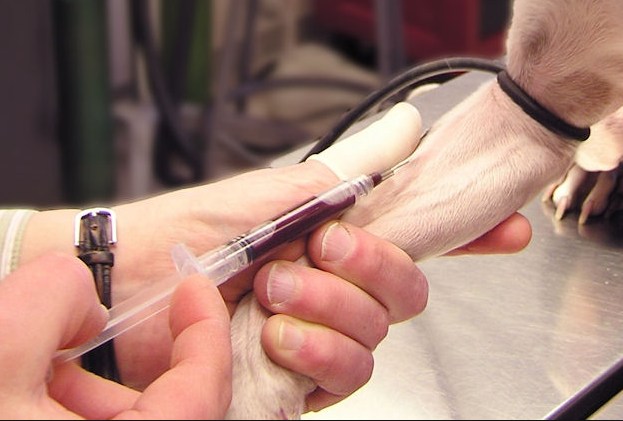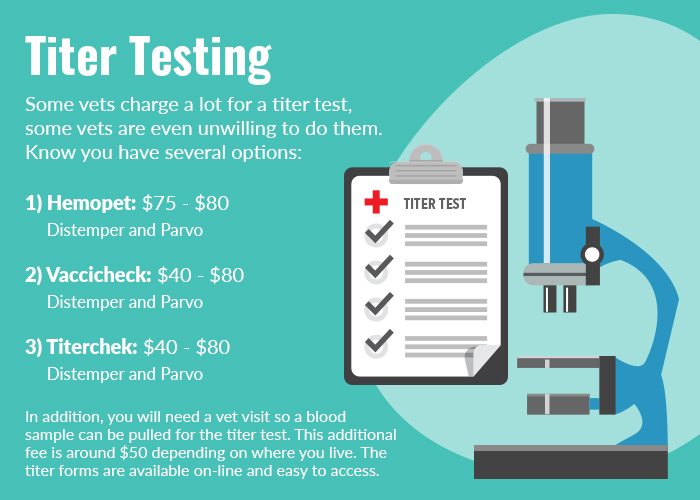

In the realm of healthcare, titre testing emerges as a crucial tool, yet it remains shrouded in a cloud of mystery for many. To pique your curiosity, consider this: How can we assess the effectiveness of a vaccine, or determine if our immune system is prepared to fend off a specific disease? This post seeks to unravel the complexities of titre testing, shedding light on its vital role in healthcare.
Titre testing, at its core, is a method used to measure the concentration of specific antibodies in the blood. Its primary purpose is to check immunity levels, whether after vaccination or during the recovery phase of an illness. This testing finds its applications across various fields, including human healthcare, veterinary medicine, and research.
Understanding the science behind titre tests is crucial. It involves the body’s immune response and the development of antibodies in response to antigens. This section will describe the general process of conducting a titre test and how blood samples are analyzed to measure antibody levels.
The significance of titre testing in healthcare cannot be overstated. It plays a pivotal role in preventing over-vaccination by helping make informed decisions about the necessity for additional vaccinations. Additionally, titre tests are crucial in various healthcare scenarios, such as evaluating the immunity of travelers or immunocompromised individuals.
Understanding the Immune Response and the Role of Vaccination
I
In the intricate world of healthcare, understanding how our bodies fend off diseases is both fascinating and vital. Imagine a world where every exposure to a pathogen could mean serious illness. This post aims to demystify the inner workings of the immune system and elucidate the crucial role vaccinations play in bolstering our defenses against diseases.
At the heart of our body’s defense mechanism is the immune system, a complex network that includes white blood cells, antibodies, and the lymphatic system. This section offers a clear and comprehensive explanation of how these components work together to identify and combat pathogens like bacteria and viruses. We’ll explore the process of natural immunity development, discussing how the body builds defenses after being exposed to different pathogens.
Vaccinations represent a cornerstone in preventive medicine, and understanding how they function is crucial. Vaccines are developed to safely stimulate the immune system, creating immunity without causing the disease itself. This part of the post will describe the basics of vaccines, how they are created, and their role in stimulating immunity. We’ll also touch on the different types of vaccines, including live attenuated, inactivated, and mRNA vaccines, explaining how each type works to protect us.
Measuring the effectiveness of these vaccines is where titre testing comes into play. Titre tests are used to assess the level of antibodies in the blood, serving as a gauge for immunity. We’ll explain how these tests are conducted and what their results can indicate about an individual’s immune response to a vaccine.
Exploring the Types and Applications of Titer Tests in Healthcare
Titre tests hold a pivotal role in the diagnosis and management of various diseases, yet their intricacies often remain underappreciated. This article delves into the diverse world of titre testing, aiming to illuminate the different types of these tests and their significance in medical practice.
Titre tests, in essence, measure the concentration of specific antibodies in the blood, indicating an immune response to pathogens like viruses or bacteria. This section will provide an overview of titre tests, outlining the principle behind them. We’ll explore various types of titre tests, including those for common diseases such as measles and varicella, and discuss more specialized tests used in allergy testing or autoimmune disease management.
The clinical applications of titre tests are vast and varied. In human medicine, these tests play a critical role in verifying immunity after vaccination, assessing immune status in immunocompromised patients, and contributing to epidemiological studies. In the realm of veterinary medicine, titre tests are instrumental in determining vaccination schedules for pets and diagnosing animal diseases. The public health implications of these tests are also significant, particularly in controlling outbreaks and managing vaccination programs.
Understanding the results of titre tests is crucial for both healthcare professionals and patients. We will discuss how these results are typically presented, what different levels of antibodies imply, and how to interpret positive, negative, or equivocal results. The significance of varying antibody levels and the factors that can influence test results, such as the timing of the test post-vaccination, will also be highlighted.

Titre Testing vs. Regular Vaccination: A Comprehensive Comparison
The choice between regular vaccination schedules and titre testing often presents a dilemma for both pet owners and individuals looking to optimize their immunization strategies. This post aims to provide a detailed comparison between titre testing and traditional vaccination, exploring their benefits, limitations, and roles in personalized healthcare plans.
Titre testing, which measures the level of antibodies in the blood to determine immunity, comes with its set of advantages. One significant benefit is its potential to reduce over-vaccination, especially in cases where individuals or animals may already have sufficient immunity. It also provides peace of mind for those uncertain about their immunity status and is particularly valuable in managing individuals or animals sensitive to vaccines. However, titre testing is not without limitations. The cost can be prohibitive for some, and the interpretation of results may vary. Moreover, a titre test is not always an absolute indicator of protection against disease.
Traditional vaccination schedules have been a cornerstone in preventing numerous diseases. They follow a set timeline for administering vaccines to ensure optimal protection. Titre testing can complement these schedules by offering a more personalized approach. By assessing an individual’s or animal’s specific immune response through titre tests, healthcare providers can tailor vaccination plans, potentially avoiding unnecessary doses.
To further illustrate the practicality of titre testing, the post will include case studies where it has been instrumental in healthcare decisions. These may range from scenarios in human medicine to veterinary cases where a titre test helped avoid additional vaccinations in animals with previous vaccine reactions. Additionally, findings from research studies that underscore the effectiveness of titre testing in specific situations will be discussed. This will showcase the diverse applications and benefits of titre testing across various scenarios.
In conclusion, this comprehensive comparison of titre testing and regular vaccination schedules aims to inform and guide individuals and pet owners in making educated decisions regarding immunization. By balancing the benefits of each approach and understanding their respective roles in healthcare, one can navigate these choices more confidently and effectively.
Pros and cons
Titre Testing vs. Regular Vaccination: A Comprehensive Comparison
Pros of Titre Testing:
- Personalized Assessment: Provides a detailed measure of immunity by evaluating antibody levels, allowing for a more personalized approach to healthcare.
- Prevents Over-Vaccination: Helps avoid unnecessary vaccinations if sufficient immunity is already present, which can be especially important in individuals or animals with vaccine sensitivities.
- Informs Booster Decisions: Assists in determining whether booster vaccines are needed, based on the current level of immunity.
- Reduces Risks of Adverse Effects: By potentially reducing the number of vaccinations, titre testing can minimize the risk of adverse reactions or side effects from vaccines.
- Useful for Immunocompromised Individuals: Can be particularly beneficial in assessing the immune status of individuals with weakened immune systems.
Cons of Titre Testing:
- Cost: Titre tests can be more expensive compared to standard vaccinations, potentially limiting their accessibility.
- Not Always Conclusive: Results might not conclusively determine protection, as the presence of antibodies doesn’t always equate to effective immunity.
- Limited Availability: Not all antibodies can be measured by current titre tests, and some diseases may lack reliable tests.
- Interpretation Variability: Test results can sometimes be difficult to interpret, requiring specialized knowledge.
- Frequency of Testing: Periodic testing may be needed to monitor immunity levels, leading to more frequent healthcare visits.
Pros of Regular Vaccination:
- Proven Effectiveness: Vaccines have a long history of effectively preventing many diseases, with well-established schedules.
- Widespread Protection: Regular vaccination helps in creating herd immunity, protecting populations, including those who cannot be vaccinated.
- Cost-Effective: Generally, vaccines are more affordable and accessible than titre testing.
- Long-term Immunity: Many vaccines offer long-term immunity, reducing the need for frequent healthcare interventions.
- Standardized Schedules: Vaccination schedules are well-established, making it easier for healthcare providers and individuals to follow.
Cons of Regular Vaccination:
- Risk of Over-Vaccination: There’s a potential risk of administering more vaccines than necessary, particularly in individuals or animals already possessing immunity.
- Side Effects: While generally safe, vaccines can sometimes cause adverse reactions or side effects.
- Not Suitable for All: Some individuals or animals may have contraindications for certain vaccines due to health conditions or allergies.
- One-Size-Fits-All Approach: Standard vaccination schedules may not account for individual variations in immune response.
- Compliance Challenges: Keeping up with regular vaccination schedules can sometimes be challenging, especially in areas with limited healthcare access.

The Role of Titre Testing in Veterinary Medicine: A Guide for Pet Owners
In the ever-evolving world of pet healthcare, titre testing emerges as a significant tool, sparking curiosity and questions among pet owners. This article seeks to delve into the realm of titre testing for pets, aiming to elucidate its importance, the protocols involved, and the necessity of owner education on this subject.
Titre testing, in its essence, is a diagnostic method used in veterinary medicine to determine the level of antibodies present in a pet’s blood. This is crucial for assessing immunity against certain diseases. The benefits of titre testing for pets are manifold, including reducing the frequency of unnecessary vaccinations and precisely identifying immunity levels to various diseases. Such testing is invaluable in customizing healthcare plans to suit the specific needs of individual pets.
Veterinary medicine has established protocols for titre testing, which we will present based on guidelines from veterinary associations and experts. This includes the recommended frequency and timing for conducting these tests in various scenarios, such as after vaccinations or in the presence of specific health conditions. Additionally, understanding how veterinarians interpret titre test results is crucial for making informed healthcare decisions for pets.
Educating pet owners about titre testing is vital. This part of the article will emphasize the need for pet owners to understand what titre testing entails, its benefits, and its limitations. It’s essential to address potential misconceptions and provide clear, accurate information to help pet owners make informed decisions about their pets’ healthcare.
The Future of Titre Testing and Immune Monitoring: A Look Ahead
As we stand on the brink of a new era in healthcare, the evolving landscape of immune monitoring and titre testing beckons with endless possibilities. This article aims to delve into the advancements shaping the future of titre testing, offering a glimpse into the innovations that could redefine our approach to immune health.
Recent technological innovations have significantly enhanced the capabilities of titre testing. These advancements range from increased accuracy and speed to improved accessibility. We will highlight these developments and also discuss how digital technology, including AI and machine learning, is integrating into titre testing. This integration paves the way for more sophisticated data analysis and interpretation. Additionally, the emergence of non-invasive titre testing methods will be explored, along with their potential benefits.
Looking into the crystal ball, we will offer insights into the potential future trends in titre testing. This will involve considering groundbreaking approaches and applications that could emerge in the coming years. The impact of these advancements on healthcare is profound, from the potential to revolutionize personalized medicine to the way vaccines are developed and administered. Furthermore, the global health implications of these advancements, especially in the context of managing epidemics and refining vaccination strategies, will be contemplated.
Conclusion
The journey towards optimal health begins with understanding. The realm of medical testing, particularly titre testing, plays a crucial role in this journey. This article aims to demystify titre testing, a tool critical in assessing immunity, and empower readers with knowledge to make informed health decisions.
Titre testing is an invaluable tool in the medical toolkit, serving as a measure of immunity by detecting the presence and concentration of antibodies in the blood. This overview aims to clarify what titre testing is and its pivotal role in determining immune status. The article recaps the varied applications of titre testing in human and veterinary medicine, underscoring its value in crafting personalized healthcare plans. Additionally, we briefly revisit the recent technological advancements and future trends in titre testing, keeping readers abreast of the evolving landscape of immunity monitoring.
An essential aspect of healthcare is the dialogue between patients and healthcare providers. This article stresses the importance of having informed conversations about titre testing. It provides guidance on approaching healthcare professionals with questions about titre testing and vaccinations, thereby empowering individuals to make educated choices regarding their health or their pets’ health.
In conclusion, understanding and actively participating in one’s healthcare, particularly in aspects like immunity monitoring, is a fundamental step towards overall health and wellness. The article concludes with reflective insights on the importance of this understanding and encourages readers to broaden their perspectives regarding health. It emphasizes the critical role of titre testing and immune monitoring in a broader health context. The final encouragement motivates readers to remain informed and proactive about their health and the health of their loved ones, including their pets.
